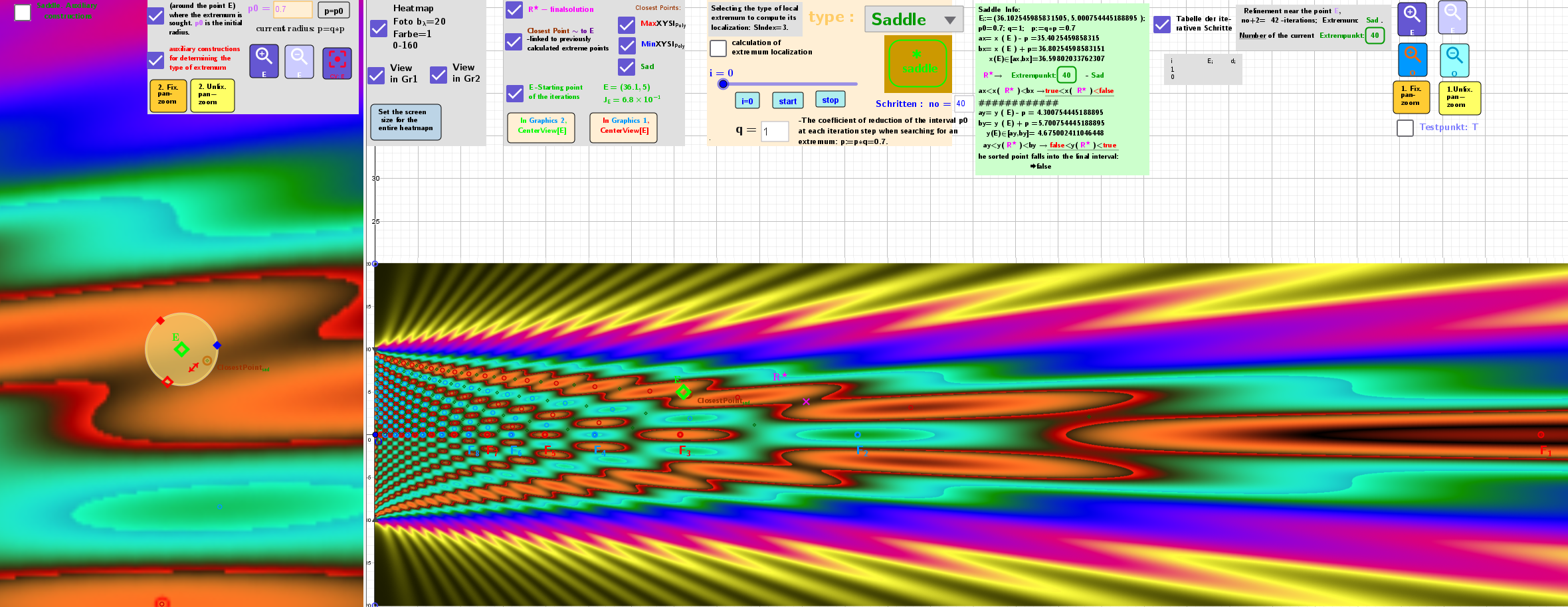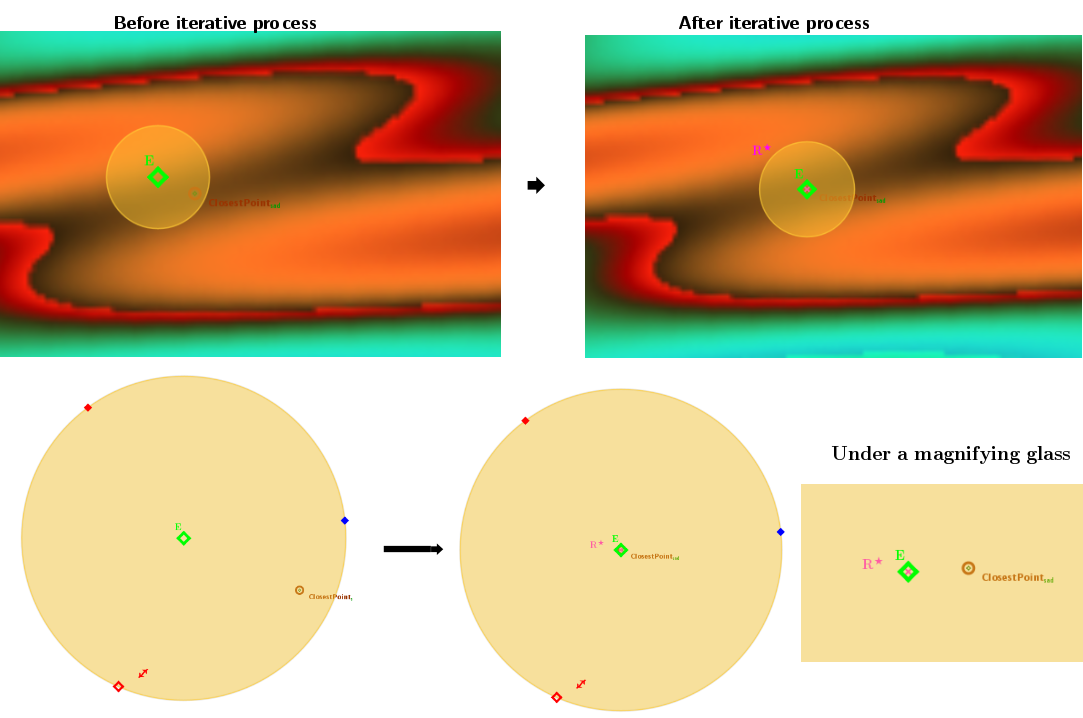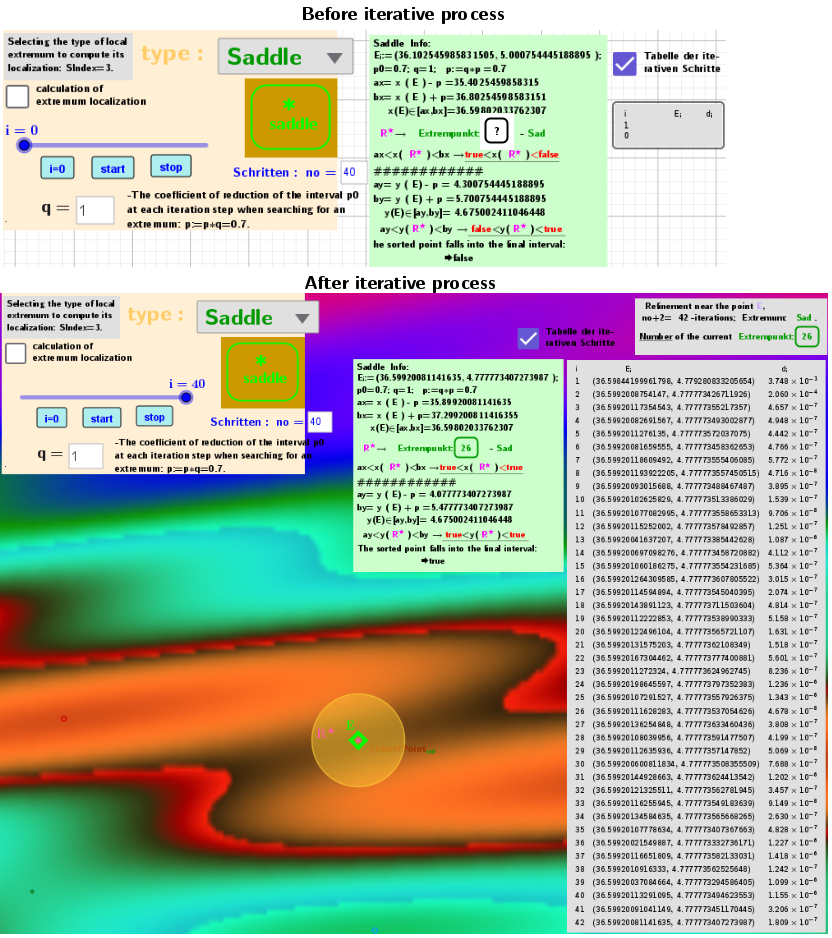Images of the applet application of the coordinate descent-ascent algorithm for computing stationary points of a numerical function f(x,y) in the case of finding a saddle points
These Images were obtained using the applet.
The position of the starting point and the resulting point of the iterative process for finding the saddle point

![[size=85][b][sup]*[/sup]Position of the starting point [color=#00ff00]E[/color] of the iterative process of finding the saddle point.
[b][b][size=85][color=#cc4125]Closest Point[/color], a point of a previously performed approximate solution.[/size][/b][/b][/b][/size]](https://www.geogebra.org/resource/mwzygdkq/EiJ0THBdxNapQYBH/material-mwzygdkq.png)
![[b][sup][/sup][size=85][sup]*[/sup]Position of the resulting point [color=#ff00ff]R[sup]*[/sup][/color]of the iterative process of finding the saddle point.[/size][/b]](https://www.geogebra.org/resource/arv6ccbt/2SvSm86T6YFd0hWj/material-arv6ccbt.png)
Before and After iterative process

Tables Before and After the Iterative Process

Comparison of the diffraction field intensities before and after the iterative process with the Closest Point intensity for a point of a previously performed approximate.
